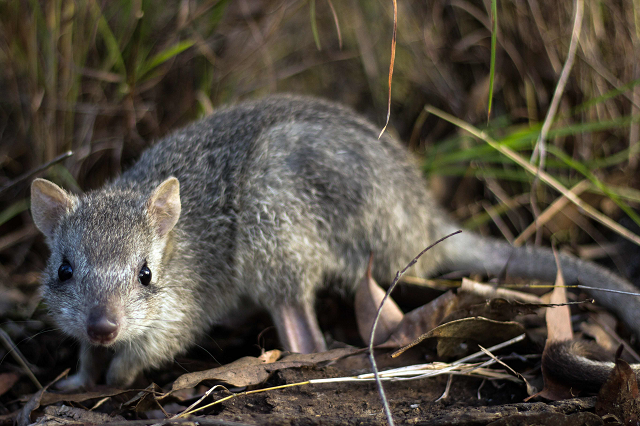Extinction warning for Australia's truffle-eating 'rat kangaroo'
The WWF says only two populations of the northern bettong remain in Queensland state

This handout picture taken on June 23, 2016 and released by WWF-Australia and James Cook University shows a northern bettong (bettongia tropica) at a wildlife care house in Ravenshoe, Queensland. PHOTO: AFP
The World Wildlife Fund said only two populations of the northern bettong remained in the wet coastal tropics of northern Queensland state, numbering at most 2,500 individuals, down 70 percent in the past 30 years.
Eel trafficking in the EU, the world's 'biggest wildlife crime’
The nocturnal, rabbit-sized bettongs are at risk from feral cats, land-clearing and wildfires, which have become more frequent and fierce in Queensland due to climate change.
"We know particularly with climate change a massive wildfire could be just around the corner," said Tim Cronin, WWF's senior manager for species conservation in Australia.
"Any situation where you have one population isolated and that's all you have in the wild, it puts you at a really high risk."
Cronin said it was critical to establish an "insurance population" of the northern bettong, protected from pests and fire, and consider raising the species' status from "endangered" to "critically endangered".
Fin whale, mountain gorilla populations rise amid conservation action
"It's not too late for the northern bettong, but our window of opportunity for action is closing fast," he said.
The northern bettong is one of the main animals which eat truffles, dispersing truffle spores across its habitat and maintaining a delicate ecological balance.
"It plays a really unique role in maintaining ecological function in the vegetation. So if we lose it - and other species like it - we could be looking at ecological collapse," Cronin said.



















COMMENTS
Comments are moderated and generally will be posted if they are on-topic and not abusive.
For more information, please see our Comments FAQ